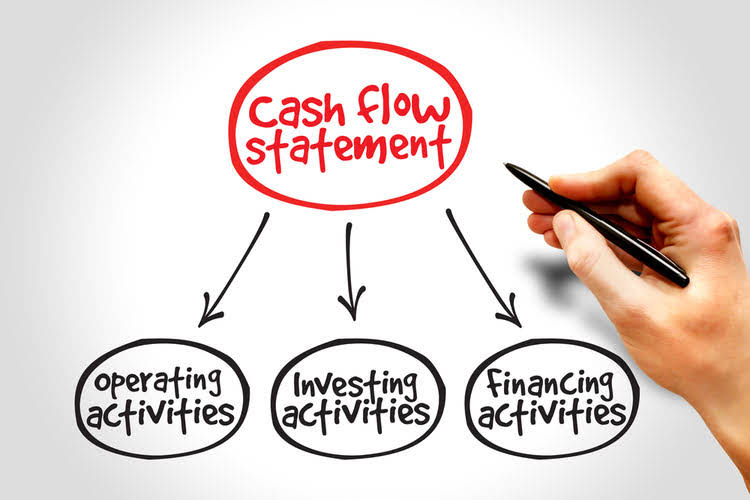keine Produkte im Einkaufswagen.
LegalRoids
15 Möglichkeiten, wie ein Wirtschaftsprüfer Ihre Rentabilität verbessern kann

Sie organisieren Bargeldreserven und erstellen einen Ausgabenplan, der sicherstellen, dass immer Geld auf der Bank vorhanden ist. Es wird den Zahltag weniger stressig machen, Lieferantenbeziehungen leichter - und tiefer schlafen. Sie dienen als Personen, die sich zwischen einer Organisation und einem Kunden wenden.
- Sie können Ihnen strategische Ratschläge geben und clevere Möglichkeiten finden, um Geld zu sparen oder den Umsatz zu steigern.
- Während größere Unternehmen häufig die Buchhalter im Personal halten, Kleinunternehmen verschließen in der Regel mit einem Wirtschaftsprüfungsunternehmen oder einem unabhängigen Buchhalter, der die von ihnen benötigten Dienstleistungen anbietet.
- Laura ist ein freiberuflicher Schriftsteller, der sich auf kleine Unternehmen spezialisiert hat, E -Commerce- und Lifestyle -Inhalt.
- Auch wenn Sie der Meinung sind, dass Sie viele Jahre von Ruhestand oder Ausverkauf entfernt sind, Es ist wichtig, den Wert Ihres Unternehmens heute zu kennen, damit Sie für die Zukunft planen können, die Sie haben möchten.
- Abhängig von der Größe und den Bedürfnissen des Geschäfts, Diese Buchhalter können monatlich arbeiten, vierteljährliche oder jährliche Basis.
- Durch die Auslagerung dieser Aufgaben an einen erfahrenen Buchhalter oder Wirtschaftsprüfungsunternehmen, Geschäftsinhaber können sich auf Kernoperationen konzentrieren und gleichzeitig wissen, dass ihre Finanzen in Expertenhänden sind.
Geschäftswissen
Der Verkauf Ihres Unternehmens erfordert möglicherweise legal einen Due -Diligence -Prozess. In diesem Fall, Ihr Buchhalter kann mit dem Buchhalter Ihres potenziellen Käufers sprechen. Zeit ist Geld, Und Buchhalter sparen Ihnen Zeit, Geld, und möglicherweise Wie ein Buchhalter einem Unternehmen zum Erfolg beitragen kann Ihre geistige Gesundheit. Es gibt viele verschiedene Pflichten und Einschränkungen, um ein neues Unternehmen zu gründen. Die Einstellung eines Buchhalters nimmt die stressigen finanziellen Aufgaben von Ihrem Teller ab.
So finden Sie den richtigen CPA für Ihr kleines Unternehmen
Ein Buchhalter kann Ihnen helfen, die Registrierungen zu steuern, um sicherzustellen, dass Sie konform sind und Strafen vermeiden. Whether you’re just starting out or already navigating the challenges of running a business, managing finances can feel overwhelming. These financial challenges could be addressed with the help of an accountant. In the long run, the amount of money saved through avoiding mistakes and fines outweighs the cost of hiring outside help. Laura is a freelance https://www.bookstime.com/ writer specializing in small business, E -Commerce- und Lifestyle -Inhalt.
What role does technology play in CPA services?
By using cloud-based accounting software, Konten und Diagramme können schnell und mit Leichtigkeit mit Ihnen geteilt werden. Dies bedeutet, dass Sie verstehen, was in Ihrem Unternehmen auf einen kurzen Blick vor sich geht. Buchhalter helfen Unternehmen bei regelmäßigen Tätigkeit. Die Analyse wird Managern helfen, fundierte Entscheidungen mit den aktuellsten Daten zu treffen.
Sie stellen sicher, dass alle Finanztransaktionen ordnungsgemäß erfasst und klassifiziert werden, einschließlich Verkäufe, Einkäufe, Gehaltsabrechnung, und Ausgaben. Durch effizientes und genaues Dokumentieren dieser Transaktionen, Buchhalter bieten eine zuverlässige Grundlage für die Finanzanalyse, Budgetierung, und Vorhersage. Ihre Dienstleistungen gewährleisten die Einhaltung, bieten wertvolle Einblicke in die Geschäftsleistung, und unterstützen Sie Ihr Wachstum, indem Sie Finanzgeschäfte optimieren. Die Optimierung des Cashflow -Managements ist für die Aufrechterhaltung Ihrer wichtigsten Gewinn- und Verlustrechnung finanzielle Gesundheit des Unternehmens, und ein CPA kann in diesem Bereich erhebliche Know -how bieten. Stellen Sie sich Beratungsdienste als die Füllung der Funktion eines CFO vor, Ohne Gehalt und Vorteile.


Im Großen und Ganzen, Größere Unternehmen unterliegen mehr staatliche Regulierung. Die Einhaltung dieser Anforderungen kann viel Zeit in Anspruch nehmen, und Fehler sowohl leicht als auch potenziell sehr schädlich. Ähnlich, Wenn die Geschäftsfinanzen komplexer werden, Sie werden mit ziemlicher Sicherheit einen Spezialisten brauchen, der diese für ihn übernimmt. Ein Buchhalter kann Sie auch über die beste rechtliche Struktur für Ihr Unternehmen beraten - Einzelträger, Limited Company, oder etwas anderes. Ein von Ihrem Buchhalter abgeschlossener Geschäftsplan ist einer, der bereit ist zu rollen - und wird auch für Investoren attraktiver sein. Für Unternehmen, die verwenden Jahrgang Zahlungsmodelle, Sicherstellen, dass ein nahtloses wiederkehrendes Zahlungssystem auch die Effizienz und die Einhaltung der Einhaltung erhöhen kann.
- Durch die Beratung der optimalen Ressourcenzuweisung und der Finanzplanung, CPAs helfen Ihnen bei der Maximierung der Renditen für Investitionen.
- Buchhaltungssoftware kann Fakten und Zahlen bereitstellen, die Ihre Anwendung stärken.
- Sie führen umfassende finanzielle Analysen durch und überprüfen betriebliche Prozesse, um Ineffizienzen und potenzielle Verbesserungsbereiche zu identifizieren.
- Buchhalter helfen Unternehmen, finanzielle Fehler zu verhindern, die ein Geschäftsgeld kosten könnten.
- In der Regel, Sie zahlen entweder eine Gebühr pro Service, oder ein Stundensatz.
Ein Mietvertrag gegen Kaufrechner kann Ihnen das Wissen geben, das Sie benötigen, um die richtige Entscheidung für Ihr Unternehmen zu treffen. Leasingarrangements können komplex sein, but by weighing up all of the opportunities beforehand you can enter into agreements with peace of mind. The calculator will also give you some information before entering into a conversation with an accountant if you went down that route. As accountants, they are mainly working with your company’s financial data.

The more integrated thinking is entrenched into a business’s daily activities, the better the integration and flow of information into analysis, management reporting, and decision-making. Buchhalter helfen Unternehmen, finanzielle Fehler zu verhindern, die ein Geschäftsgeld kosten könnten. An accountant will prevent both small and large mistakes — like overdrafts to bank accounts, oder eine Steuerfrist verpassen, die zu enormen Strafen führen kann. Es geht auch darum, Ihr Unternehmen so gut wie möglich zu führen - und dies könnte ein Experte einbeziehen, um Ihnen bei der finanziellen Seite der Dinge zu helfen.
Durch Durchführung einer gesetzlichen Prüfung, Unternehmen können Transparenz nachweisen und das Vertrauen der Stakeholder gewinnen, einschließlich Investoren, Kreditgeber, und Regulierungsbehörden. Buchhalter verwenden ihr Know -how in finanziellen Prognosetechniken, um realistische Umsatzprognosen zu schaffen, Kosten, und Cashflows. Diese Prognosen helfen Unternehmen, Wachstum zu planen, indem es potenzielle Finanzierungslücken ermittelt und strategische Entscheidungsfindung erleichtert. Interne Kontrollen sind Verfahren, Richtlinien, und Systeme, die von Unternehmen implementiert werden, um die Vermögenswerte zu schützen, Stellen Sie eine genaue Finanzberichterstattung sicher, und die Vorschriften einhalten. Die Aufgabe eines Buchhalters besteht darin, diese internen Kontrollen zu entwerfen und zu implementieren, Erstellen von Prozessen für ein effektives Cash -Management, Bestandskontrolle, Aufzeichnung, und Aufgaben Trennung. Das mildernde finanzielle Risiken ist für die Geschäftsstabilität und das Wachstum von entscheidender Bedeutung.
